Hey there! We know that undergoing a dental procedure can be a bit daunting, but having the right aftercare instructions can make all the difference in your recovery. In this article, we'll walk you through essential tips to ensure your healing goes smoothly and to help you avoid any complications. So, if you're ready to take charge of your dental care post-procedure, keep reading for valuable insights that will make your recovery a breeze!
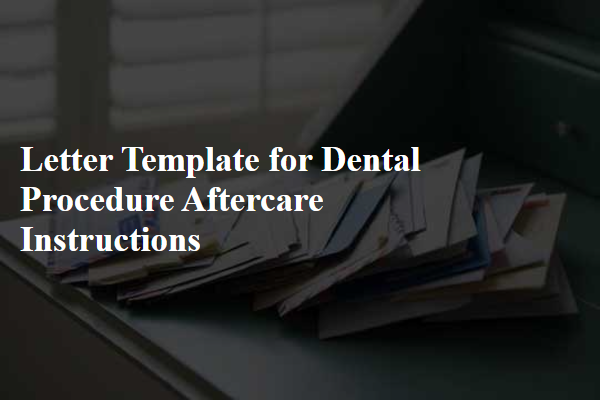
Procedure-specific guidelines
Following a dental extraction, patients must adhere to specific aftercare instructions to ensure proper healing. The 24-hour period immediately following the procedure is crucial, as it requires avoiding strenuous activities and refraining from using straws to prevent dislodging the blood clot, which can lead to complications such as dry socket. Patients should stick to a soft-food diet, including options like yogurt and mashed potatoes, while steering clear of hot beverages that could irritate the surgical site. Maintaining oral hygiene is essential, although brushing should be done cautiously around the extraction area. Swelling is common and may be managed with ice packs applied to the outside of the face for 15-minute intervals. Pain relief may necessitate over-the-counter medications, and it's advisable to follow the dosage recommendations featured on the label. If adverse symptoms such as excessive bleeding or severe pain occur, immediate contact with the dental office may be crucial for further assessment.
Pain management advice
Effective pain management is crucial after dental procedures, such as tooth extractions or root canals. Over-the-counter analgesics like Ibuprofen or Acetaminophen can alleviate discomfort. Dosage typically ranges from 200 to 400 milligrams for Ibuprofen every six hours, while Acetaminophen is taken at 500 to 1000 milligrams every six hours, not exceeding 3000 milligrams in a 24-hour period. Prescription medications may be provided for more intense pain. Additionally, applying an ice pack on the affected area for 15-minute intervals can significantly reduce swelling and numb pain. It is essential to maintain proper hydration, consuming fluids and soft foods to support healing without aggravating sensitive areas. Keeping follow-up appointments at your dental clinic, such as [Clinic Name], is essential to monitor recovery and manage pain effectively.
Dietary recommendations
After dental procedures, patients may experience sensitive gums and temporarily altered chewing ability. It is crucial to adhere to dietary recommendations to facilitate proper healing. Soft foods, such as yogurt, mashed potatoes, or smoothies, are suggested for the first few days following the procedure. Avoiding hard, crunchy, or sticky foods ensures that the surgical site remains undisturbed. Additionally, hot liquids should be minimized to prevent discomfort (maximum temperature of 37 degrees Celsius recommended). Hydration is essential; opt for water or electrolyte drinks while steering clear of acidic beverages, such as soda or citrus juices. Following these dietary guidelines can promote recovery and prevent complications.
Hygiene practices
After dental procedures, such as tooth extractions or root canals, maintaining optimal hygiene practices is essential for recovery. Patients should gently rinse their mouth with warm salt water (1 teaspoon of salt in 8 ounces of water) 24 hours post-procedure to reduce the risk of infection. Brushing teeth should be avoided near the surgical site for the first few days; however, gentle brushing of other areas is encouraged. Using a soft-bristled toothbrush can minimize irritation. Avoiding hard, crunchy, or sticky foods is recommended to prevent disruption of the healing area, while ample hydration is crucial. Patients should consider scheduling a follow-up appointment (typically 1-2 weeks post-procedure) to ensure proper healing and address any concerns. Engaging in smoking or alcohol consumption during the recovery phase may significantly impede healing and should be avoided.
Emergency contact information
Post-procedure care for dental patients is crucial for recovery. Emergency contact information, such as the dental office number (usually listed on the appointment card), should be kept easily accessible. Patients should also have a backup contact like a family member or friend who can assist during recovery. Always note symptoms that require immediate attention, such as excessive bleeding or severe pain, which may indicate complications. Many dental offices provide a 24-hour emergency line for urgent queries. It is essential to store this information in a visible location, ensuring it is available during recovery times when clarity is critical.
Letter Template For Dental Procedure Aftercare Instructions Samples
Letter template of recovery recommendations following root canal treatment
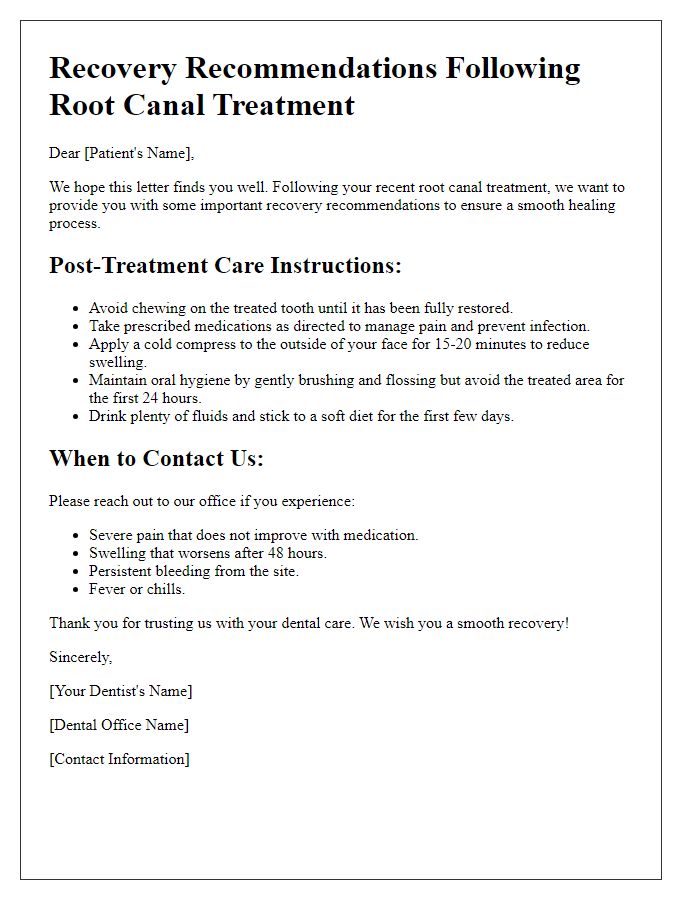

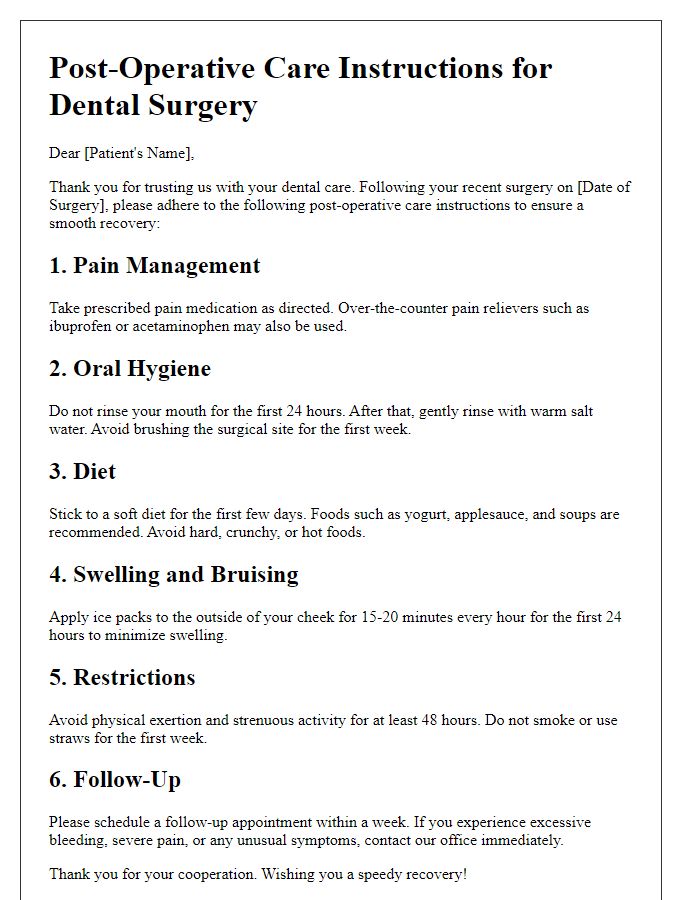
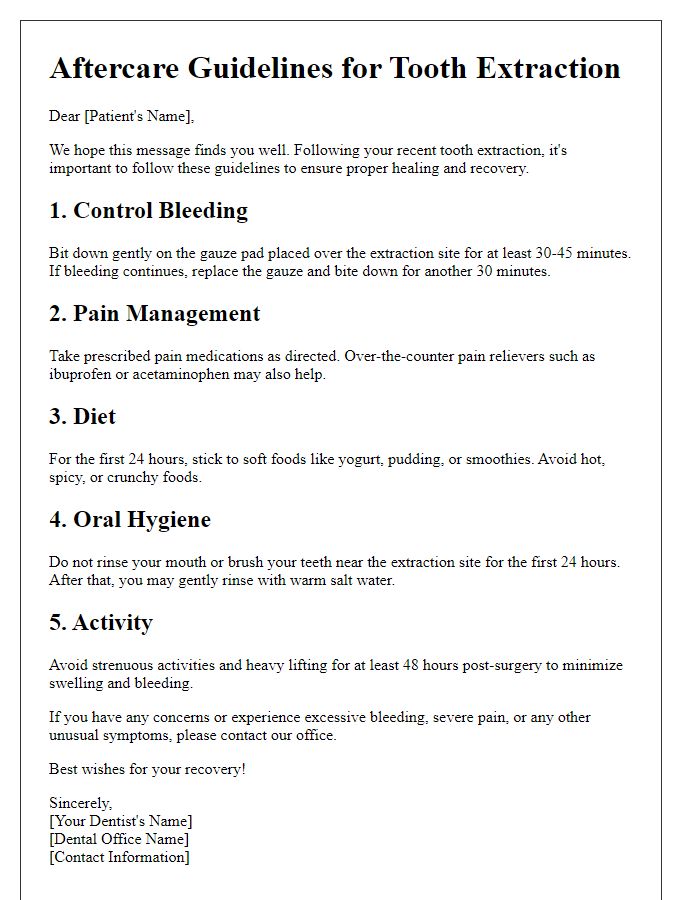
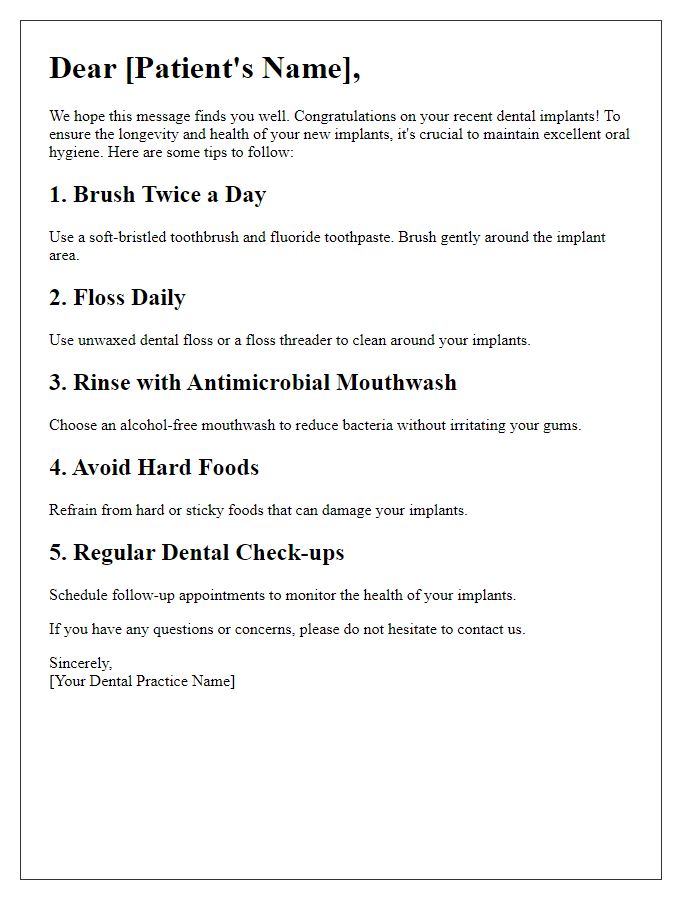
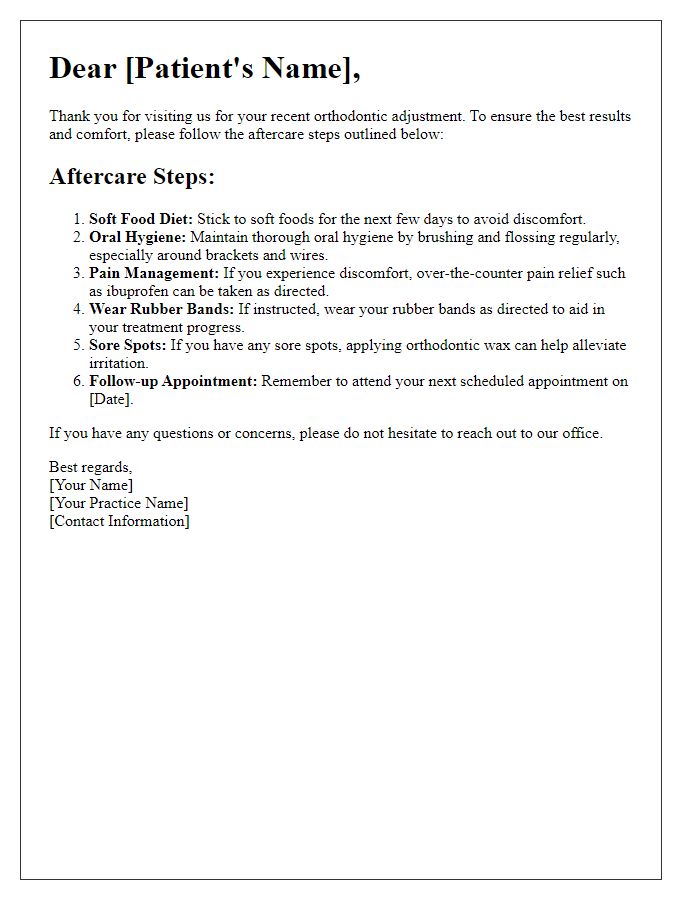
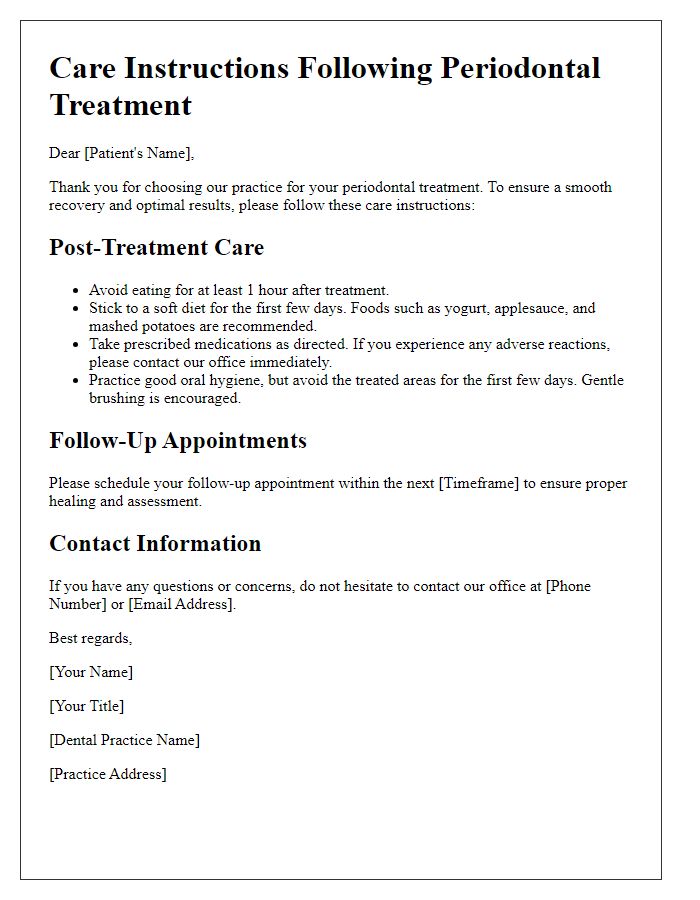
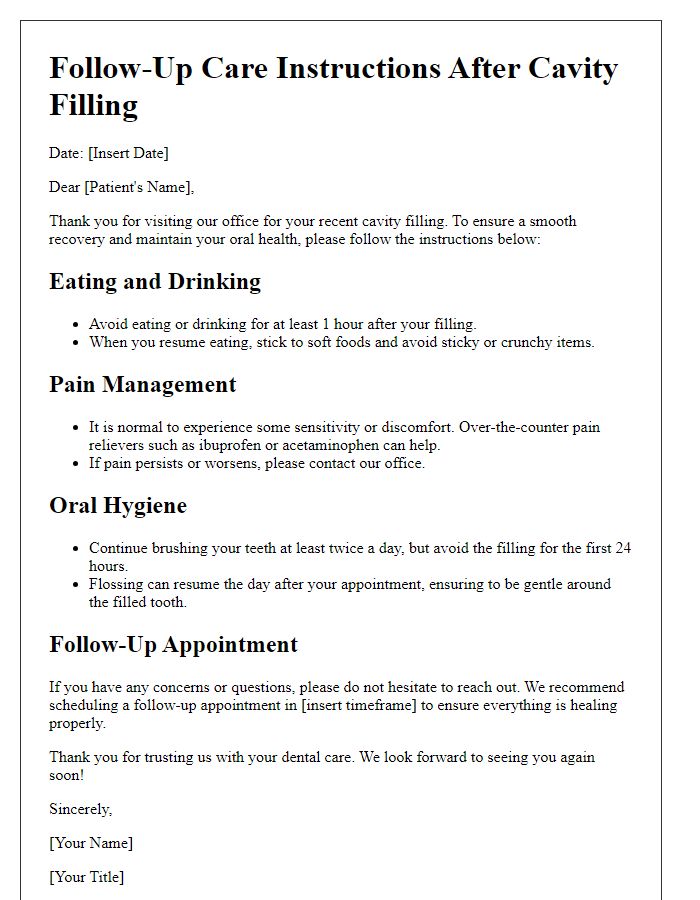
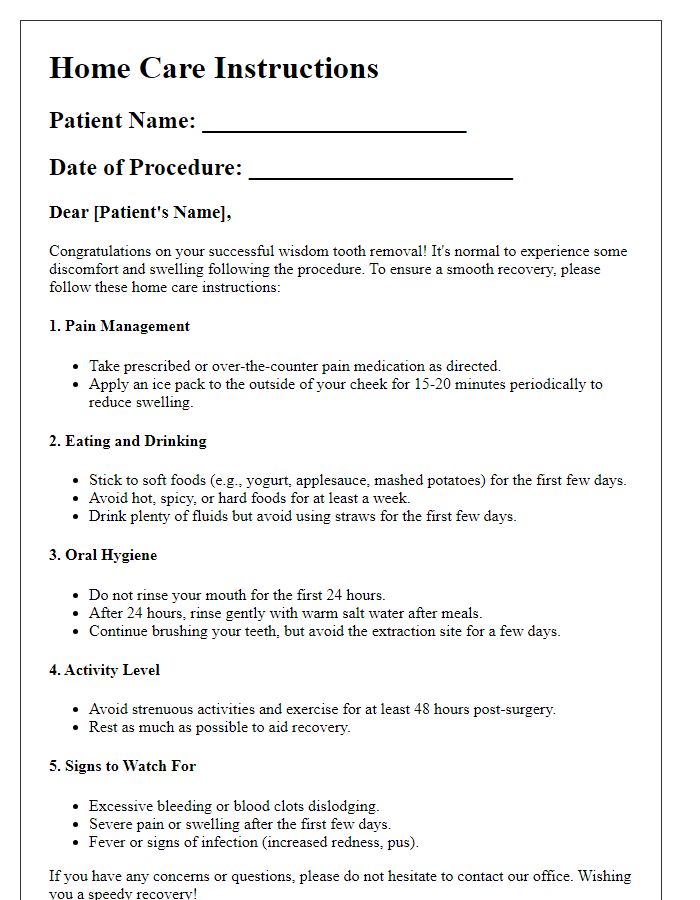
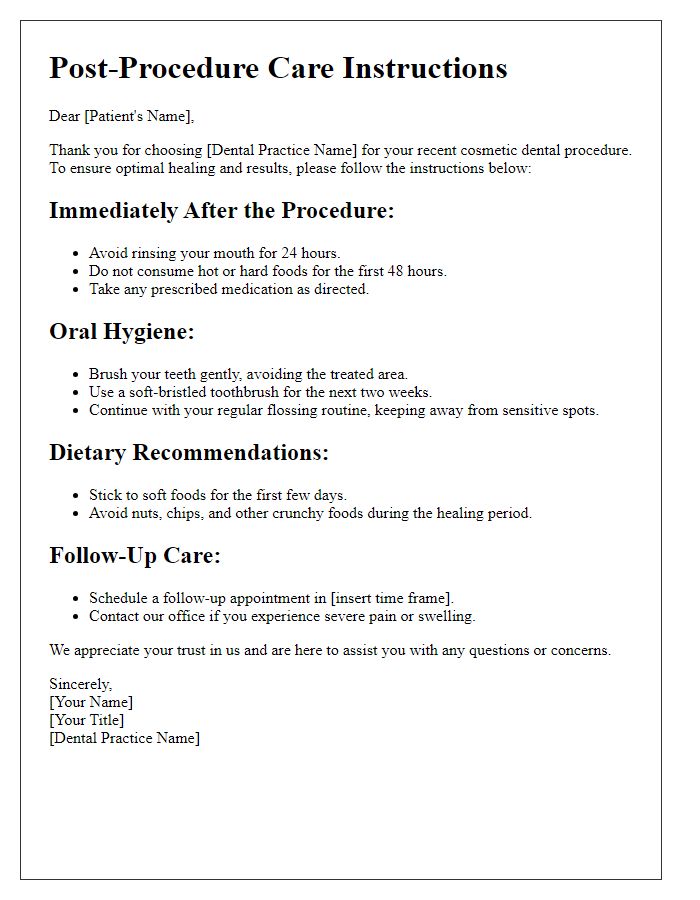
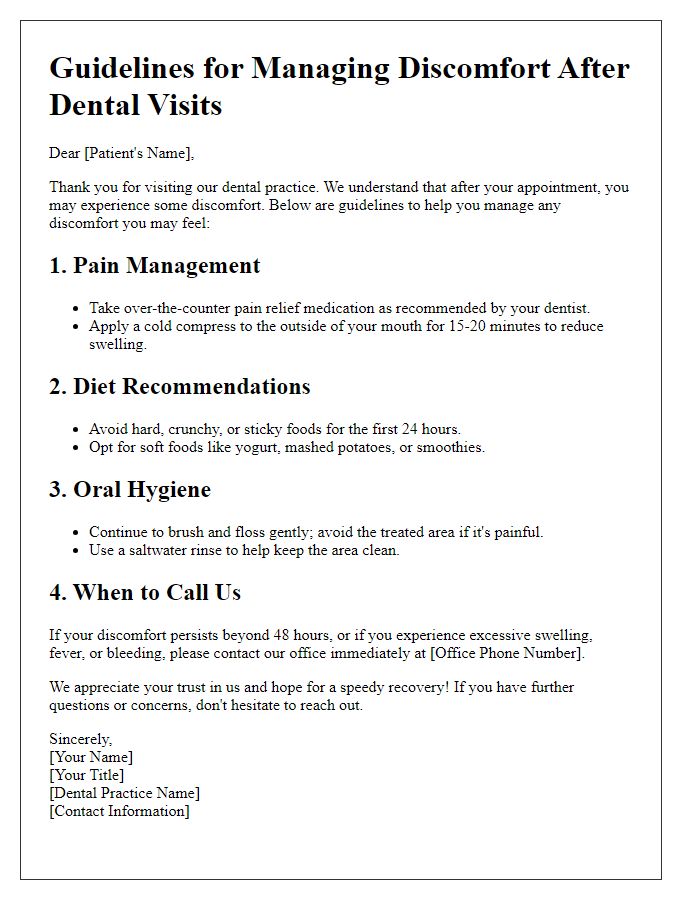

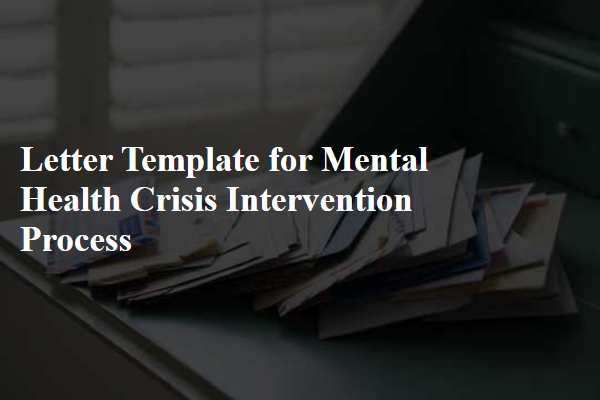
Comments